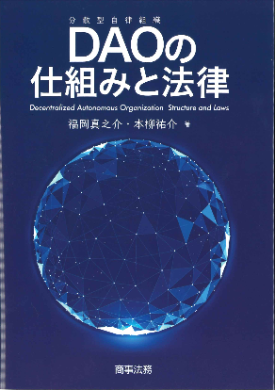-
Articles
New Criteria For The Rate Of Fees Or Expenses In Debt Collection
Every year, there are literally thousands of unfair debt collection complaints made to the Thai Government, which can be divided into three main problems:
- (1) high and unreasonably expensive fees for debt collection, especially the ‘field debt collection fee’ for hire purchase loans, where debtors are charged such fees of Baht 20,000 – Baht 40,000 per time;
- (2) Unlimited occasions of debt collection, causing some debtors to be charged dozens of times for collection fees; and
- (3) Collection of fees for a low amount of debt, causing people to be charged for the debt collection in an amount close to or higher than their actual debts.
Consequently, the Notification of the Debt Collection Supervisory Board regarding the rate of fees or expenses in debt collection (the “Notification”) was issued by its announcement in the Government Gazette on 13 August 2021, which will come into effect 30 days after its publication or as of 13 September 2021.
The criteria for the rate of fees in debt collection are as follows:
- “Fees or any expenses for debt collection” means the amount that has been determined as fees or expenses for debt collection from debtors or persons specified by the debtor for debt collection, which must contain evidence or documents relating to debt collection for the verification thereof, but excluding the cost of asset tracking.
- “Debt Collection Cycle” means the period for debt collection, which is from the date of payment default until the due date for the next debt repayment period; the period of which must not be less than one month.
1. When the debtor defaults on payment, the debt collector may charge a fee or any expenses in debt collection, as follows:
- (1) Not exceeding Baht 50 per debt collection cycle if the debtor is overdue by one installment.
- (2) Not exceeding Baht 100 per debt collection cycle if the debtor is overdue by more than one installment.
For example, in general credit, if there is a default in payment of four installments, the fee or any expense that can be collected in the first period will be Baht 50, Baht 100 for the second to the fourth period, per period; totaling Baht 350.
In this regard, hire purchase or lease of a vehicle according to the law on vehicles, fees or any expenses for the cost of the actual field debt collection operation would be additionally charged in performance of debt collection. However, this must not exceed Baht 400 per debt collection cycle, and can be collected only if the debtor owes more than one installment, i.e the debt collector may start collecting said Baht 400 baht only from the second installment.
2. It is forbidden to collect fees or any expenses in debt collection if debtors have outstanding or accumulated due debts of not more than Baht 1,000.
3. It is forbidden to charge fees or any expenses for the debt collection after receipt of full debt repayment or termination of a contract legally.
The Notification stipulates the clear debt collection rate, which will help debtors and solve the three main problems as outlined above. If there is a case of high debt collection fees or expenses, or any threatening behaviour is found, a complaint can be made to the Debt Collection Committee, by calling 1567 - the Damrongtham Center hotline - for assistance.
This is intended merely to provide a regulatory overview and not to be comprehensive, nor to provide legal advice. Should you have any questions on this or on other areas of law, please do not hesitate to contact:
Nuttaros Tangprasitti
Partner
Krid Pongprapaphan
Associate







Nuttaros Tangprasitti specialises in corporate and commercial law. She regularly assists both international and domestic corporate clients (limited liability companies and partnerships, stock corporation in several industries) on the relevant laws of Thailand, which includes foreign direct investment, legal due diligence, M&A and cross-border M&A, joint venture, compliance, banking and finance. In addition to supporting clients on the above and a multitude of different legal formalities, she also has expertise in advising on various investment promotion policies of the Board of Investment (BOI), as well as compliance with foreign business, other laws on salient points for shareholders and joint venture agreements, which includes laws on immigration and foreign work under Thai law. Nuttaros speaks at many seminars and takes an active role in educating the clients on issues relevant to their businesses and her practice areas. She also writes various articles and newsletters on cutting-edge topics in several legal areas, which are widely distributed to existing and potential clients. Nuttaros aims to ensure the lawyers on her team are constantly developing and upgrading their skills, to ensure they meet or exceed the high professional standards of Nishimura & Asahi. She is committed to ensuring that both she and our firm deliver top-quality services to our clients and strong internal support for our colleagues. She recently began drafting a manual on several aspects of Thai law, as part of an “Investment promotion scheme,” and also wrote several newsletters on corporate law, and banking and finance laws. She also recently authored an article on the impact of Tax Reduction for Land and Buildings, which received excellent feedback from our clients, particularly those who are land and building owners. Nuttaros is committed to building a strong and progressive corporate and commercial practice, which also incorporates tax law, by adapting to new ideas in the legal industry.